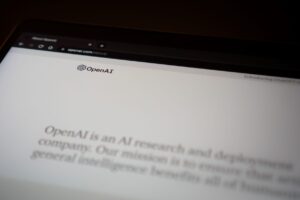Meeting supports publishers and libraries to strengthen Southern academia
INASP and the Association of Commonwealth Universities (ACU) work in partnership on the Publishers for Development (PfD) initiative. The annual PfD conference is a forum bringing together key scholarly publishers with developing-country researchers, librarians and academics. PfD encourages dialogue between these parties, promoting a greater understanding of the unique challenges they face, while encouraging mutually beneficial, cooperative working relationships and practices.
In this blog post Neil Johnson from the ACU talks about the organization’s new Research, Knowledge and Information Community, and how the ACU’s work in fostering cooperative relationships forms the basis for its involvement in PfD.
The university library is a vital part of every academic institution. This central repository of academic work, research outputs and data, and published information is essential to ongoing research. Without access to this knowledge the academic process would be impossible. Despite this, the library is often misunderstood, overlooked, and undervalued – often considered only when a service is needed, rather than being involved in the wider activities of the university.
For nearly a decade, the Association of Commonwealth Universities has been working closely with library staff across our membership as they navigate the changes and challenges arising from new technology, approaches to access, the changing nature of publishing, and the increasingly complex needs of researchers.
These working relationships have been developed further through the recent launch of the new ACU Research, Knowledge and Information (RKI) Community – a forum for librarians and research managers to share ideas and discuss common challenges in supporting academic research. The Community will highlight the good work of ACU member institutions, whilst bringing together research management offices and libraries – both within institutions and across international borders.
Adapting and cooperating
One of the first activities of the new Community was a study tour of three South African research-focussed universities. Research management and library teams at each institution demonstrated how they conduct their core functions, highlighting opportunities for cooperation. Much of the discussion focussed on how the two departments could benefit from a closer working relationship. One explanation for the distance between the teams was a lack of understanding about the library’s role.
Libraries have adapted to the new academic landscape by, for example, implementing digitisation projects, designing online open access repositories and increasing electronic journal collections, building research commons with 24-hour study spaces, and developing training sessions. In some instances, however, the university library can seem to be struggling to maintain its profile within the modern university. One of the aims of the ACU RKI Community is to help to ease the burden by highlighting examples of good practice and, in time, by offering support through training and other resources.
Developing relationships
An earlier – but pivotal – example of the ACU’s work in this area was a conference held with the University of Botswana in 2007, which explored the theme of the modern university library. Discussions revealed that better relationships between the publishers of academic journals and university libraries, would help institutions with limited finances to improve their access to relevant research material, thereby delivering vital information to the research community. This realisation was a cornerstone of our developing relationship with university libraries.
It also formed the basis of the ACU’s involvement in the Publishers for Development (PfD) initiative. By bringing publishers and university librarians together – through its annual conferences and the links formed there – PfD has proven effective in disavowing each side of various misunderstandings and enabled closer and more effective working relationships. Such trust will be vital in the coming years as the academic landscape continues to shift and university libraries attempt to adapt accordingly.
Responsible engagement
This year’s conference – How can we work responsibly in developing countries? – is especially vital. Building on the work of previous years, this year’s conference will consider a list of principles that would underpin the concept of a ‘responsibly engaged’ publisher. Intended to guide publishers in adapting to meet the needs of libraries and the consortia that often represent them, these principles will hopefully form a checklist by which publishers can self-regulate and better adapt to supporting libraries in developing regions.
This is not a one-sided issue, however. Whilst the academic library finds itself adapting to a difficult and perhaps uncertain environment, the academic publisher, in turn, is adapting to a world of Open Access, new publishing models and competitive business environments. The previous expectations that publishers philanthropically donate material to those most in need are proving to be unsustainable or can now seem impractical. It is essential that publishers consider the pressures facing university libraries when forming future strategies, but it is equally important that university libraries acknowledge the pressures facing publishers.
Furthermore, the common roles of publishers and librarians are often overlooked. Publishers find themselves collecting an ever-expanding archive of academic knowledge whilst librarians increasingly ‘publish’ websites, blogs, and resource guides. These increasing overlapping interests and objectives can only help to improve relations – enabling an empathetic edge to negotiations – and to minimise duplicated efforts.
As such, in the future, PfD may look at to developing a series of principles to underpin ‘responsible engagement’ for university libraries. By establishing these principles, the Publishers for Development programme will hope to improve the increasingly complicated and misunderstood relationship between publishers and their audiences.
This year’s PfD conference will take place on 30th June in Charles Darwin House, London. Find out more and register here.
Please bookmark this site and follow @pubsfordev on Twitter for further information on the conference. The hashtag for the meeting will be #pfd2015 and join the conversation using #inaspPrinciples.




